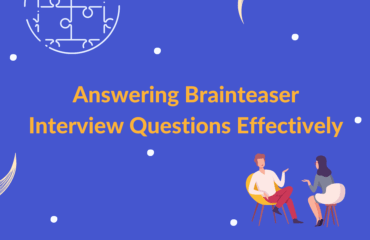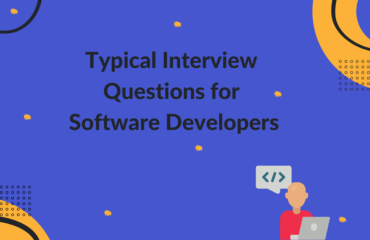Table of Contents
Are you planning to pursue a job in one of the FAANG companies? Do you know someone who is planning to pursue a job in the tech industry? Yes? Then, this article is for you!
To give some context, FAANG is an acronym that refers to five American tech giants: Facebook Inc, Amazon, Apple Inc, Netflix, and Google-parent Alphabet Inc. Tech companies are undoubtedly one of the most valuable entities in the world. Why is that? Well, there are a couple of reasons. In almost every aspect of our lives, technology plays a massive role, from the tools we use to study, work, play, shop, and interact with one another. Even organizations rely on technology to operate and market their products and services.
From a financial standpoint, investors are increasingly investing in FAANG. These tech titans have emerged as the biggest stocks on the Nasdaq. Amidst one of the most difficult economic downturns with the pandemic and antitrust investigations, the combined revenue of these tech titans grew by a fifth to $1.1 trillion. Clearly, tech companies made huge profits, with a combined market cap of approximately $8 trillion.
So, if you are considering a career in the tech industry, then this article will get you prepped to the T for some common and unique questions that Big Tech firms might ask.
Understanding FAANG job interviews
Just like other interviews, job interviews for FAANG companies are conducted online and in person. The purpose of these interviews is to assess the candidate’s knowledge, skills, and abilities with respect to a specific job role. The questions asked in FAANG job interviews are an amalgamation of traditional interview questions, brainteasers, technical proficiency tests, and problem-solving questions. Broadly the questions are categorized as follows:
- Behavioral questions
- Situational or competency-based questions
- Technical questions
Behavioral interview questions
Behavioral interview questions are targeted to understand more about the candidate and analyze their fitment in the organization. The key to nailing behavioral interview questions is the STAR technique i.e. by clearly identifying a Situation, Task, Action, and Result of any relevant experience that you may have. Some examples of behavioral questions asked in FAANG companies are:
How do you build and maintain functional relationships with colleagues working in other locations? (Microsoft)
How do you keep yourself / your team / your colleagues motivated? (Amazon)
Now, let’s understand how to tackle behavioral interview questions:
a) What was your specific role and responsibilities on the most recent project you worked on?
- This question aims at understanding the candidate’s experience in terms of work or academics, and the skills they might have picked up in the process.
- To answer this question, thoroughly describe your role and responsibilities in that role highlighting a few key takeaways from that role.
b) What is the project you are most proud of, and how did you contribute to it?
- The aim of this question is to gauge if the candidate has worked on any task – be it in academia or in the industry, and if they thoroughly researched the task/project that was assigned.
- Take this as a chance to describe your skills such as research, planning, and coordination. The focus of the answer should revolve around how you can add value to the organization.
Situational interview questions
Situational or competency-based interview questions essentially consist of hypothetical situations where candidates are expected to resolve a problem or respond to a challenging scenario. These questions are aimed at analyzing a candidate’s competencies such as communication, management, leadership, problem-solving, risk-taking, and adaptability. A few common situational interview questions you can expect during a job interview are:
Can you describe your most difficult customer and how you were able to handle their needs? (Amazon)
How do you make sure that your colleagues remain accountable? (Google)
Let’s go through some examples that explain how to answer situational interview questions:
a) What would you do if you were asked to perform a task and weren’t sure how to complete it?
- This question seeks to understand the candidate’s problem-solving skills.
- Consider this as an opportunity to communicate your thought process or mindset when you encountered an obstacle.
- To answer this effectively, describe the problem, the solution recommended by you, and the result.
b) How would you overcome the challenge of working with a difficult co-worker on a team project?
- The objective of this question is to understand the candidate’s stress management, communication, and problem-solving skills.
- To answer this, start with stating the situation, your thought process while approaching the challenge, the solution you came up with, and the development.
- Try to keep a neutral tone when describing the other party in the situation to avoid any negative feedback yourself.
Technical questions
Lastly, comes the key bit of FAANG job interviews i.e. a round of technical questions. This round consists of questions on the candidate’s technical knowledge, skills, and experience. While the type of technical questions varies as per the need of the role, the underlying aim of technical questions is to test the candidate’s ability to communicate technical concepts and describe the work process in a simple, easy-to-understand format. As per a list gathered by Glassdoor, some of the common technical questions asked by the big tech firms are:
- A website with two app servers and one database server is slow. Explain how you would investigate it and solve the performance problem? (Amazon Software Engineer Interview)
- Design and implement an algorithm that would correct typos. For example, if an extra letter is added, what would you do? (Facebook Software Engineer Interview)
- Find all (English word) substrings of a given string (every = every, ever, very). (Google Software Engineer Interview)
- How many gallons of milk do Googlers drink in a day? (Google OMAP Program Interview)
- Write a C++ code to reverse the order of words in a string, without using any additional buffer. (Microsoft Software Engineer Interview)
A few examples of how you could answer technical questions are as follows:
a) What coding language are you most comfortable with?
- When this question is asked in an interview, the aim is to understand the candidate’s understanding of the concept which in this case is the coding language expected to be used.
- In such a case, try to mention all the coding languages you have used, narrowing it down to the specific one you are comfortable with working and explain the reason behind it.
b) What is a SAN, and how is it used?
- The aim of this question is to test your technical knowledge about a specific network that will be key to a given role.
- To answer this, first of all, define what SAN is, mentioning what the acronym stands for, its function or use, and how this would be applied to the role you are interviewing for.
c) When is it appropriate to denormalize database design?
- Another example of a technical question that aims to analyze the candidate’s ability to identify the positives and negatives of choosing to denormalize a specific database design.
- To answer this, think through the pros and cons of adopting this method and, clearly identify when to use the same.
d) What is the role of continuous integration systems in the automated build process?
- The objective of this question is to understand the candidate’s conceptual knowledge about continuous integration systems and how to use them in the automated build process.
- To answer this, start by defining continuous integration and then move on to explaining its usage or application in the automated build process highlighting why it is important.
Conclusion
Oftentimes, in job interviews, candidates get tensed about coming up with the right answer. However, these questions, be they behavioral, situational, or technical questions, are essential tools to understand a candidate’s thought process and what value they will add to the organization. FAANG job interview questions are more about the process one takes. This means that the recruiters would analyze the candidate’s approach to a task, such as:
- whether or not they have checked the assumptions
- if they have thought through all the possible cases
- the method in which they broke down the problem
So, think of these questions as opportunities for you to prove your worth in the tech world. Additionally, to prepare you better in terms of your answers, salary negotiation, body language, and tone of voice, feel free to reach out to us. We would be more than happy to help you!











